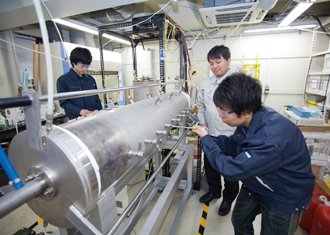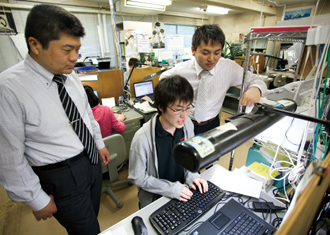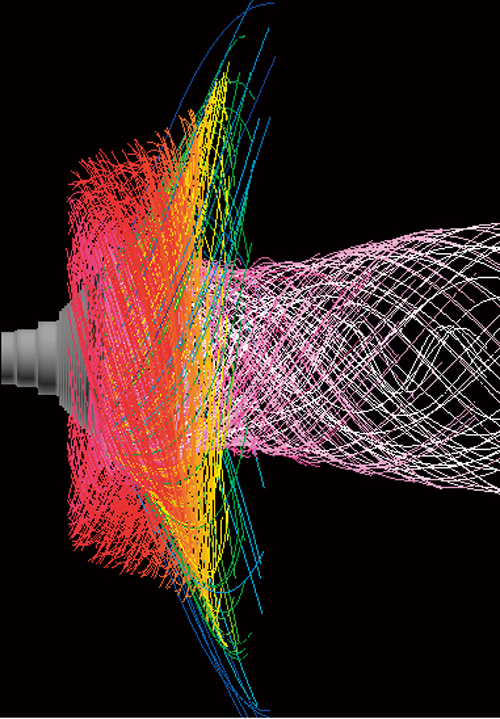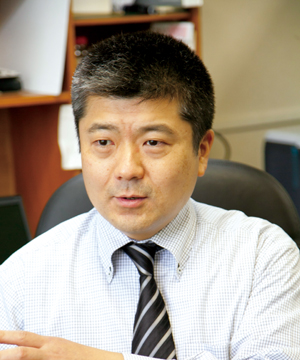Energy Process Engineering
Using computer simulation in theoretical experiments to boost industrial efficiency


The development of industrial society depends upon our ability to understand phenomena and translate this understanding into innovation in industrial processes. Advanced computer simulation technology is the key to this quest. If we can develop unique models and reproduce hitherto unresolved phenomena on the computer, we can produce valuable materials effectively. Our work is used to design improvements and modifications to reaction systems and predict the quality levels of output materials.
At present we are focusing on developing very precise control and regulation regimes for specific types of reactions. In the area of combustion, for example, we are looking at ways to achieve complete combustion with zero environmental pollutants. We are also developing a method for controlling the single shaped aggregation in the carbon black generation process. This sort of research requires a comprehensive and quantitative understanding of the phenomena involved and high accurate numerical simulation.
The phenomena that we study do not occur in isolation. Unfortunately, the phenomena are composed by parallel processes such as fluid flow, heat transfer and chemical reactions. Researchers need to be able to adopt an engineering approach, with the ability to identify and analyze key phenomena. Ongoing repetition of the simulation process is important for developing this skill set.
A great many industrial products are made via chemical reactions. Our research at the Aoki Laboratory extends to all types of reaction phenomena used in industrial processes. Our researchers and engineers hone their approach on the basis of this fundamental understanding of the nature of their work. When you join a university research laboratory, your outlook changes; no longer are you taught a specific area of study, you create your own field of study. It can be lonely, and it can even be somewhat daunting to explore unchartered territories. But we provide a supportive research environment to learn and grow together. Here at the Aoki Laboratory we are dedicated to producing talented researchers who will feature in the technology-driven society of the future.

Simulation of spray painting using high-speed rotating bell cup
Main Research Themes
- Designing hydrogen storage tanks with hydrogen absorbing alloys
- Morphological simulation of carbon black aggregates
- Developing a low-polluting combustion method with high-pressure pulse spraying
- Simulation of spray painting using high-speed rotating bell cup
- Investigating strength development mechanisms in steelmaking coke

Professor of Chemical Engineering at the Graduate School of Engineering
Doctor of Engineering
Hideyuki Aoki
HIDEYUKI AOKI
Graduated from Tochigi Prefectural Utsunomiya Higashi Senior High School in 1983. Completed a doctorate in chemical engineering at the Graduate School of Engineering, Tohoku University, in 1992. Appointed Professor of Chemical Engineering at the Graduate School of Engineering, Tohoku University in 2011. "On a time capsule that we made at primary school, I wrote that one day I wanted to be scientist doing chemical experiments in a white coat. But it turns out that most of us don't wear lab coats anyway!" (laughs) Slogans of the Aoki Laboratory: "Always" that means dedicate yourself to your work each and every day./ "Engineers are the wild samurai!" These are two of my favorite sayings from former professors Shigemori Ohtani and Takatoshi Miura.

